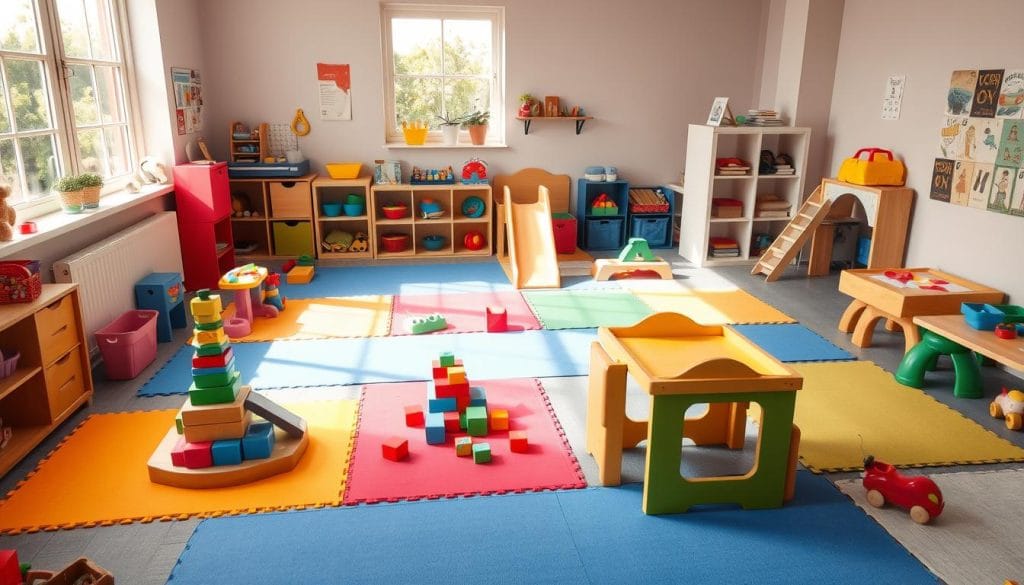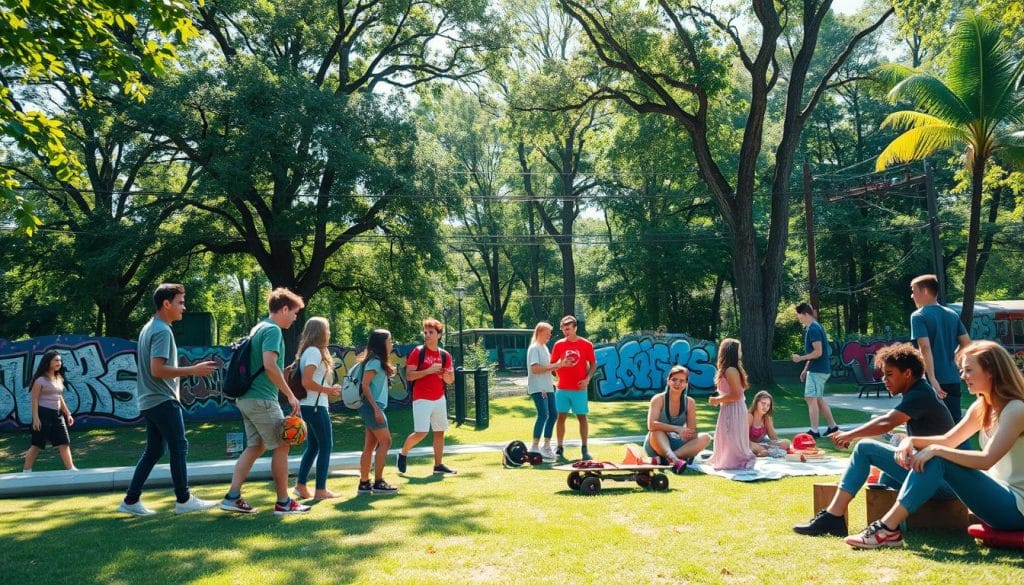As we navigate through life, it’s essential to prioritize activities that bring us joy and fulfillment. Engaging in age-specific activities can have a profound impact on our physical and mental well-being, regardless of our age. From children’s activities that foster cognitive development to age-specific activities for seniors that promote social engagement, the benefits are numerous. According to the National Institute on Aging, participating in social and other activities can help support healthy aging, reducing the risk of developing health problems such as dementia, heart disease, and certain types of cancer.
Age-specific activities, including children’s activities, are designed to meet the unique needs and interests of different age groups. By participating in these activities, individuals can improve their physical and mental health, social skills, and overall well-being. For instance, engaging in age-appropriate activities can enhance a child’s problem-solving skills by approximately 25%, while older adults who participate in activities they enjoy report higher levels of happiness and lower levels of depression.
With so many age-specific activities to choose from, it’s easy to find something that suits your interests and lifestyle. Whether you’re looking for age-specific activities for children or seniors, the key is to find activities that are engaging, challenging, and fun. By doing so, you can improve your overall health and well-being, while also enhancing your social skills and sense of purpose.
Key Takeaways
- Engaging in age-specific activities can improve physical and mental health, social skills, and overall well-being.
- Age-specific activities, including children’s activities, are designed to meet the unique needs and interests of different age groups.
- Participating in age-appropriate activities can enhance cognitive development, problem-solving skills, and social interaction skills in children.
- Older adults who participate in activities they enjoy report higher levels of happiness and lower levels of depression.
- Age-specific activities can help reduce the risk of developing health problems, such as dementia, heart disease, and certain types of cancer.
- Engaging in age-specific activities can improve overall health and well-being, while also enhancing social skills and sense of purpose.
Understanding Age-Specific Activities
Engaging in age-specific activities is crucial for the development and well-being of individuals at different stages of life. For seniors, activities such as gentle exercise and socializing can help maintain physical and cognitive health. On the other hand, family-friendly activities like outdoor games and arts and crafts are perfect for families with young children.
It’s essential to understand the unique needs and interests of each age group to provide tailored engagement. For instance, toddlers require activities that promote sensory exploration and motor skill development, while seniors benefit from activities that support physical and cognitive health.
Importance of Tailored Engagement
Tailored engagement is vital for promoting healthy development, socialization, and learning. By providing age-specific activities, individuals can develop new skills, build confidence, and form meaningful relationships. For example, senior activities like book clubs and discussion groups can help seniors stay mentally active and engaged.
Benefits for Different Age Groups
Different age groups benefit from various types of activities. For instance:
- Seniors: gentle exercise, socializing, and cognitive stimulation
- Families with young children: outdoor games, arts and crafts, and educational activities
- Toddlers: sensory play, motor skill development, and interactive games
By understanding the importance of age-specific activities, individuals can choose the most suitable activities for their age group, promoting overall well-being and happiness.
| Age Group | Activity Type | Benefits |
|---|---|---|
| Seniors | Gentle exercise | Physical health, cognitive stimulation |
| Families with young children | Outdoor games | Socialization, physical activity, bonding |
| Toddlers | Sensory play | Motor skill development, cognitive stimulation, exploration |
Activities for Toddlers (1-3 Years)
Toddlers are naturally curious and love to explore their surroundings. At this age, it’s essential to provide them with age-appropriate activities that promote learning and development. Recreational activities, such as sensory play and outdoor exploration, can help stimulate their senses and encourage creativity.
Some examples of age-appropriate activities for toddlers include:
- Sensory play with playdough, sand, or water
- Outdoor exploration, such as going for walks or playing in the park
- Simple arts and crafts, such as finger painting or coloring
These activities can help develop their fine motor skills, hand-eye coordination, and problem-solving abilities.

In addition to these activities, it’s also important to provide toddlers with opportunities for socialization and interaction. This can include playing with other children, reading books together, and singing songs. By providing a variety of age-appropriate activities, parents and caregivers can help toddlers develop into happy, healthy, and well-adjusted children.
| Activity | Age Range | Benefits |
|---|---|---|
| Sensory Play | 1-3 years | Develops fine motor skills and hand-eye coordination |
| Outdoor Exploration | 1-3 years | Encourages creativity and problem-solving abilities |
| Arts and Crafts | 1-3 years | Develops fine motor skills and self-expression |
Engaging Preschoolers (4-5 Years)
At the age of 4 or 5, children are naturally curious and eager to learn. Engaging them in various educational activities can aid in the development of cognitive, social, and emotional skills. Children’s activities at this stage should be fun, interactive, and tailored to their age group to ensure they stay engaged and motivated.
Some examples of engaging activities for preschoolers include fun learning games, storytime, and imaginative play. These activities can help improve problem-solving skills, foster creativity, and promote social skills. For instance, puzzles, matching games, and counting games are excellent educational activities that can be enjoyed by preschoolers.
Fun Learning Games
- Puzzles to improve problem-solving skills
- Matching games to enhance memory and concentration
- Counting games to introduce basic math concepts
Storytime and Imaginative Play
Storytime is an excellent way to foster a love for reading and improve listening and comprehension skills. Imaginative play, such as dress-up or pretend play, can help preschoolers develop social skills and creativity.
Nature Scavenger Hunts
Nature scavenger hunts are a great way to encourage an appreciation for the outdoors and promote physical activity. These hunts can be tailored to the child’s age and abilities, making them an enjoyable and educational activity for preschoolers.
Activities for Children (6-12 Years)
At this stage, children are developing their interests and skills, and age-specific activities can help support this development. Family-friendly activities such as creative DIY projects, sports, and team games can foster creativity, physical activity, and social skills.
Some examples of activities for children in this age group include:
- Creative DIY projects, such as building models or crafting
- Sports and team games, such as soccer or basketball
- Educational field trips, such as visiting museums or historical sites
These activities can help children develop key behaviors essential for peer interactions, including turn-taking, and can improve their emotional recognition skills and self-confidence. For instance, participation in team sports can enhance children’s emotional regulation by 65%, and engagement in group games can result in a 60% increase in emotional recognition skills.
By incorporating age-specific activities and family-friendly activities into their daily routine, children can develop essential skills, build confidence, and create lasting memories.
Engaging Teens (13-19 Years)
As teens navigate their identities and interests, participating in recreational activities can help support this development. Technology and gaming events, such as coding clubs or gaming tournaments, can foster creativity and problem-solving skills. These activities can also provide a sense of community and socialization, which is essential for teens.
Some key benefits of engaging teens in activities include:
- Improved social skills and relationships
- Enhanced creativity and problem-solving skills
- Increased confidence and self-esteem
- Better time management and organizational skills
In addition to these benefits, senior activities such as volunteering and mentoring can also be beneficial for teens. These activities can provide opportunities for teens to develop empathy and social responsibility, while also gaining valuable life experience.
Some popular activities for teens include:
- Creative writing and arts programs
- Technology and gaming events
- Volunteering and community service
- Sports and fitness programs

Overall, engaging teens in a variety of activities can help support their development and provide them with valuable life skills. By participating in recreational activities and senior activities, teens can gain confidence, develop social skills, and build a strong foundation for future success.
| Activity | Benefits |
|---|---|
| Creative writing and arts programs | Improved creativity and self-expression |
| Technology and gaming events | Enhanced problem-solving skills and socialization |
| Volunteering and community service | Developed empathy and social responsibility |
Activities for Young Adults (20-35 Years)
Young adults are at a stage where they are establishing their careers and social networks. Age-appropriate activities can play a significant role in supporting this development. Participating in social clubs and networking events can promote career advancement and social skills. For instance, joining professional organizations or attending networking events can provide opportunities to connect with like-minded individuals.
Outdoor adventure trips, such as hiking or backpacking, can encourage physical activity and appreciation for nature. These activities can be considered as educational activities, as they provide an opportunity to learn about the environment and develop survival skills. Some popular outdoor activities for young adults include group hiking trips, rock climbing, and kayaking.
In addition to outdoor activities, personal development workshops can foster self-awareness and emotional intelligence. These workshops can include leadership training, mindfulness classes, or other educational activities that promote personal growth. By participating in these activities, young adults can develop valuable skills that can benefit them in their personal and professional lives.
Some examples of age-appropriate activities for young adults include:
- Social clubs and networking events
- Outdoor adventure trips, such as hiking or backpacking
- Personal development workshops, such as leadership training or mindfulness classes
These activities can provide a fun and educational experience, while also promoting socialization and personal growth.
Activities for Adults (36-55 Years)
As adults in this age group establish their families and careers, engaging in age-specific activities can support this development. Family-friendly activities, such as sports leagues or outdoor events, can promote physical activity and social skills. Age-specific activities, like book clubs or cooking classes, can foster intellectual curiosity and creativity.
Research suggests that adults with an active lifestyle are less likely to develop certain diseases and have a longer lifespan. For instance, a study found that physically active middle-aged and older adults have a higher odds ratio for successful aging compared to sedentary adults. Some examples of activities for adults in this age group include:
- Fitness classes, such as yoga or Pilates
- Sports leagues, like soccer or basketball
- Book clubs or discussion groups
- Cooking classes or culinary workshops
These activities can help adults in this age group maintain a healthy lifestyle, develop new skills, and build social connections. By incorporating family-friendly activities and age-specific activities into their routine, adults can promote overall well-being and set a positive example for their families.
| Activity | Benefits |
|---|---|
| Fitness classes | Improves physical health, reduces stress |
| Sports leagues | Promotes social skills, teamwork, and physical activity |
| Book clubs | Fosters intellectual curiosity, social skills, and relaxation |
| Cooking classes | Encourages creativity, cultural appreciation, and social skills |
Senior-Friendly Activities (56+ Years)
As people age, it’s essential to stay engaged in activities that promote physical and mental well-being. Senior activities, such as gentle exercise and walking groups, can help seniors stay active and social. Many communities offer recreational activities specifically designed for seniors, including arts and crafts, volunteering, and mentoring programs.
Some popular senior-friendly activities include tai chi, walking clubs, and senior centers. These activities provide opportunities for socialization, physical activity, and mental stimulation. Additionally, many businesses offer discounts and promotions for seniors, making it more affordable to participate in recreational activities.
Examples of senior discounts include:
- Amazon: 50% discount on Prime Membership for recipients of SSI, SNAP, or other government assistance
- CVS.com: 20% discount and free shipping for active duty or retired military members or their immediate family
- Goodwill: 20% discount for individuals aged 60+, available on Tuesdays
Overall, senior activities and recreational activities can play a vital role in promoting health, happiness, and social connection among seniors. By taking advantage of these opportunities, seniors can stay engaged, active, and fulfilled.
| Activity | Age Range | Discount |
|---|---|---|
| Tai Chi | 56+ | Varies |
| Walking Clubs | 56+ | Varies |
| Senior Centers | 56+ | Varies |
Seasonal Age-Specific Activities
As the seasons change, so do the opportunities for family-friendly activities and age-specific activities. From summer camps to winter sports, there are countless ways to engage in seasonal fun with family and friends.
For example, summer camps offer a great way for kids to stay active and social during the summer months, with activities such as sports, arts, and crafts. Fall festivals, on the other hand, provide a fun and festive atmosphere for families to enjoy together, with activities such as apple picking, hayrides, and pumpkin carving.
In the winter, age-specific activities such as skiing, ice skating, and snowboarding offer a great way for kids and adults to stay active and enjoy the outdoors. Additionally, winter sports such as hockey and basketball provide a fun and competitive way for kids to stay engaged and active during the winter months.
- Summer camps for kids, focusing on sports, arts, and crafts
- Fall festivals for families, with activities such as apple picking and pumpkin carving
- Winter sports for all ages, including skiing, ice skating, and snowboarding
| Season | Activity | Age Group |
|---|---|---|
| Summer | Summer camps | Kids |
| Fall | Fall festivals | Families |
| Winter | Winter sports | All ages |
Planning Successful Age-Specific Events
When planning age-specific events, it’s essential to consider the target audience and activity type. Age-appropriate activities and educational activities can be tailored to meet the needs of different age groups. For example, activities for toddlers can focus on sensory play, while activities for teenagers can focus on technology and gaming events.
To ensure a successful event, it’s crucial to have a well-planned schedule and budget. Assigning tasks and estimating costs can help prevent last-minute chaos and financial stress. Additionally, marketing the event effectively can help attract attendees and create a buzz around the event.
Tips for Coordinating Activities
- Create a schedule and stick to it
- Assign tasks to volunteers or staff members
- Plan for unexpected events or changes
Budget Considerations
When planning an event, it’s essential to consider the budget. This includes estimating costs, seeking sponsorships, and planning for contingencies. By having a well-planned budget, you can ensure that the event is financially sustainable and successful.
Marketing Your Event Effectively
Marketing the event effectively can help attract attendees and create a buzz around the event. This can include using social media, creating flyers, and reaching out to local communities. By promoting the event in a targeted and effective manner, you can ensure that it is well-attended and successful.
| Age Group | Activity Type | Marketing Strategy |
|---|---|---|
| Toddlers | Sensory Play | Social Media, Flyers |
| Teenagers | Technology and Gaming Events | Social Media, Influencer Marketing |
Conclusion: Embracing Diverse Age-Specific Activities
As we conclude our exploration of age-specific activities, it’s clear that embracing diversity is the key to fostering meaningful engagement and learning across all stages of life. By encouraging intergenerational interaction, we can promote empathy, understanding, and the exchange of valuable knowledge and experiences between different age groups.
Beyond simply providing entertainment, age-specific activities can also serve as a gateway to lifelong learning and enjoyment. Whether it’s mastering a new hobby, exploring creative outlets, or embarking on educational adventures, there are endless opportunities for personal growth and fulfillment at every age.
By actively participating in a wide range of age-appropriate activities, individuals can develop new skills, build lasting relationships, and create cherished memories. This holistic approach to engagement not only enhances individual well-being but also strengthens the bonds within our communities, promoting a more inclusive and vibrant society.
FAQ
What are age-specific activities?
What are the benefits of participating in age-specific activities?
What types of activities are suitable for toddlers (1-3 years)?
What kind of activities can preschoolers (4-5 years) enjoy?
What activities are suitable for children (6-12 years)?
What types of activities can engage teens (13-19 years)?
What kind of activities are suitable for young adults (20-35 years)?
What activities can adults (36-55 years) enjoy?
What kind of activities are suitable for seniors (56+ years)?
What are some examples of seasonal age-specific activities?
How can I successfully plan age-specific events?
Source Links
- https://www.nia.nih.gov/health/healthy-aging/participating-activities-you-enjoy-you-age
- https://www.parent.app/blog/importance-of-age-appropriate-toys-and-activities
- https://www.babysits.uk/community-resources/2811/ultimate-guide-to-kids-activities-per-age-incl-downloadable-activity-cards/
- https://huckleberrycare.com/blog/what-is-developmentally-and-age-appropriate
- https://www.cde.ca.gov/sp/cd/re/caqdevelopment.asp
- https://www.extension.iastate.edu/4hfiles/VI950902FAgesStages.PDF
- https://toddlerapproved.com/quick-easy-low-prep-activities-for/
- https://ohheyletsplay.com/home/activities-for-1-2-year-old-toddlers
- https://www.beginlearning.com/parent-resources/activities-for-4-year-olds/
- https://www.healthyyoungminds.com/activities-for-3-to-5-years-old/
- https://www.positiveaction.net/blog/social-skills-activities-and-games-for-kids
- https://www.healthyyoungminds.com/activities-for-7-to-11-years-old/
- https://rusticpathways.com/inside-rustic/online-magazine/11-life-skills-every-teen-should-have-by-age-18
- https://mentalhealthcenterkids.com/blogs/articles/social-skills-activities-for-teens
- https://www.momjunction.com/articles/fun-activities-for-teens-teenagers_00771985/
- https://open.maricopa.edu/devpsych/chapter/chapter-9-early-adulthood/
- https://teambuilding.com/blog/fun-group-activities
- https://grownandflown.com/top-board-games-super-popular-campus/
- https://pmc.ncbi.nlm.nih.gov/articles/PMC7244057/
- https://pmc.ncbi.nlm.nih.gov/articles/PMC3185208/
- https://www.theseniorlist.com/senior-discounts/
- https://seniorsskiing.com/special-edition-seniorsskiing-com-announces-senior-friendly-resorts/
- https://vibrantlifeseniorliving.com/senior-activities-near-me-washtenaw-county/
- https://www.fantasticfunandlearning.com/preschool-winter-theme-activities.html
- https://ohheyletsplay.com/home/activities-for-2-3-year-olds
- https://playofthewild.com/2019/09/03/autumn-leaf-activities-for-children/
- https://agesandstages.com/free-resources/articles/asq-learning-activities-support-child-development/
- https://www.theottoolbox.com/play-by-age/
- https://soeonline.american.edu/blog/diversity-in-the-classroom/
- https://www.naeyc.org/resources/pubs/vop/dec2021/embracing-different-perspectives
